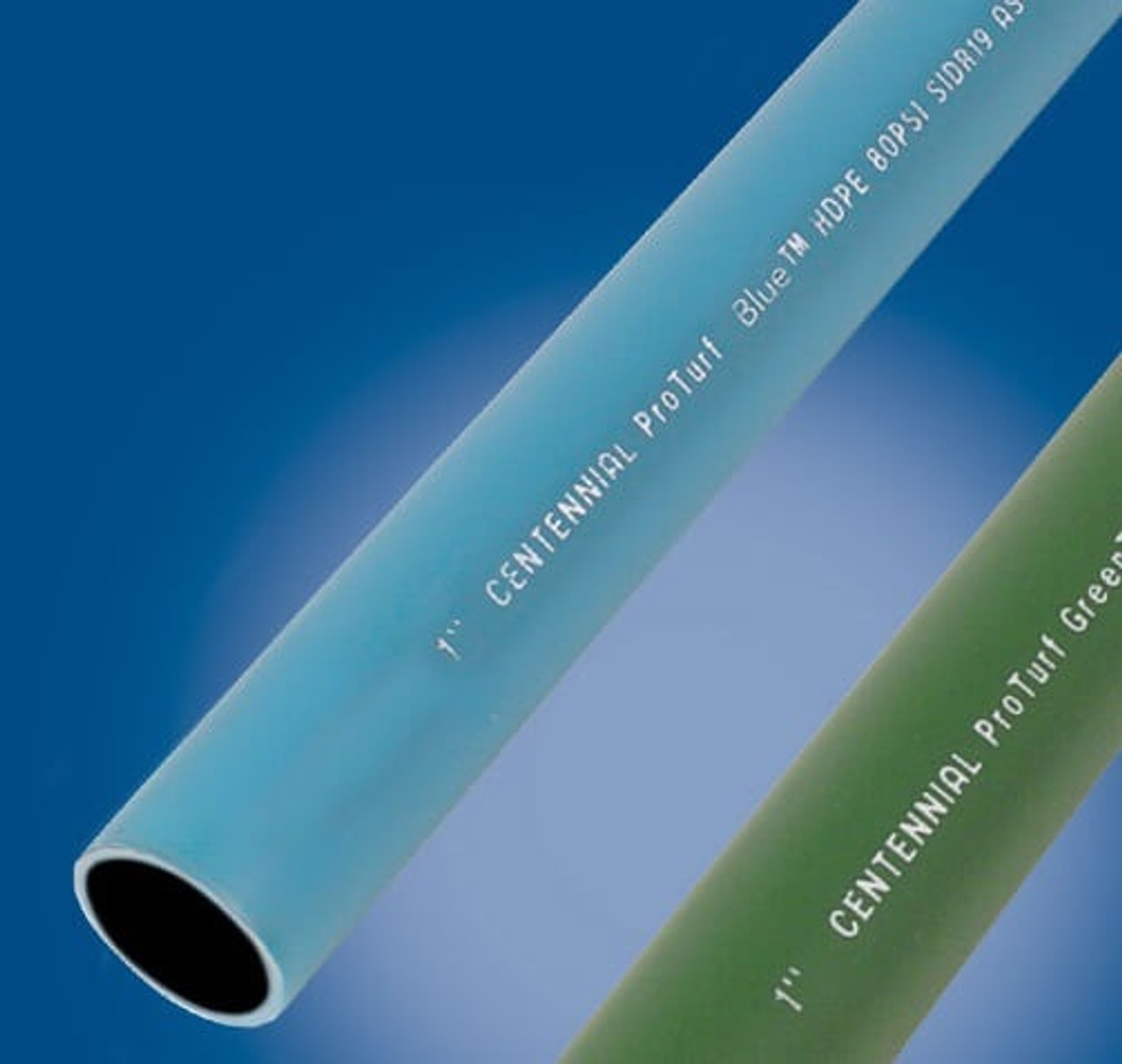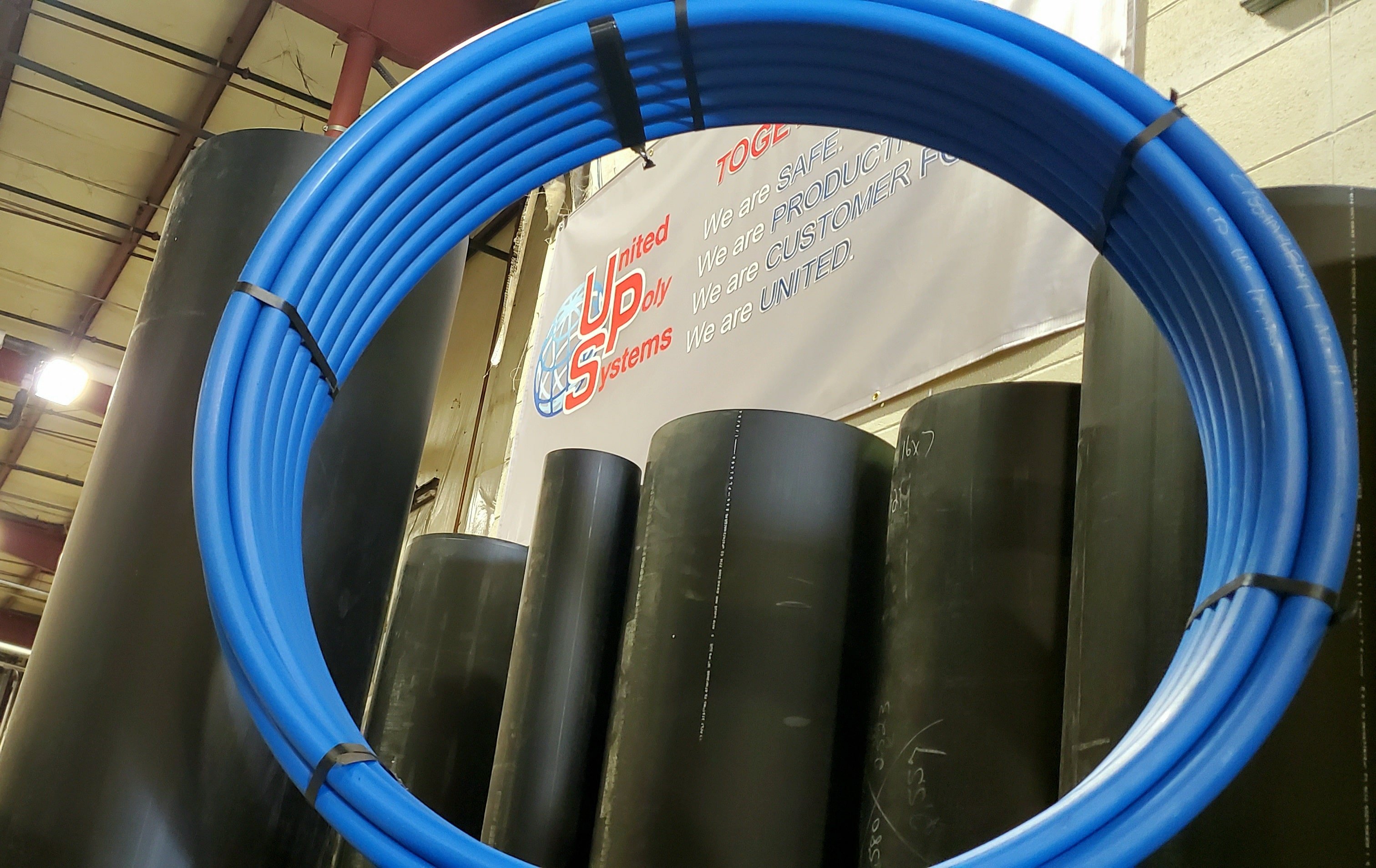A Comprehensive Guide to the Different Uses of HDPE Pipe in Construction and Sector
HDPE pipelines have become a pivotal component in modern-day building and industrial applications. Their distinct residential or commercial properties, such as resistance to deterioration and lightweight style, make them ideal for a large variety of usages. From water systems to farming irrigation, HDPE pipelines supply solutions that enhance effectiveness and sustainability. Comprehending their diverse applications is necessary for experts seeking to optimize infrastructure. What particular benefits do these pipelines bring to each field?
Water and Distribution Solutions
Water system and circulation systems are crucial components of city framework, usually depending on high-density polyethylene (HDPE) pipelines for their resilience and effectiveness. These systems transport safe and clean water from therapy facilities to consumers, making certain availability and safety. HDPE pipes are favored for their resistance to rust, chemicals, and severe temperature levels, which boosts their durability and minimizes upkeep prices. In addition, their light-weight nature permits easier installation and transportation, making them excellent for numerous urban and country applications.
The flexibility of HDPE pipelines allows them to be mounted in tight areas and around barriers, minimizing the demand for substantial excavation (Pipe Supplier American Plastics Midland). Their smooth indoor surface decreases rubbing losses, improving water flow rates. As cities continue to expand, the need for reputable water systems raises, placing HDPE pipelines as a lasting remedy for modern-day infrastructure projects. Their tested performance history makes them a recommended selection among designers and urban organizers alike
Wastewater Management and Therapy
Efficient wastewater management and therapy are vital for preserving public wellness and ecological high quality. HDPE pipelines play an important role in this procedure because of their longevity, resistance to deterioration, and ability to endure extreme chemicals. These pipelines are commonly utilized in different applications, consisting of sewer system, stormwater water drainage, and wastewater treatment facilities. Their light-weight nature facilitates much easier setup and transportation, lowering labor costs and time.
In addition, HDPE pipes have a smooth indoor surface area that decreases friction loss, advertising efficient circulation rates. They are likewise much less susceptible to leakages and failings compared to standard products, guaranteeing that impurities are contained properly. Additionally, their versatility permits versatility in different dirt conditions, making them ideal for diverse ecological setups. As markets increasingly prioritize sustainable methods, the use of HDPE pipelines in wastewater administration systems aligns with goals for minimizing ecological impact and boosting source recovery.
Agricultural Watering Solutions
In farming setups, effective irrigation options are important for maximizing crop yields and handling water sources. HDPE (High-Density Polyethylene) pipelines play an important duty in click here to read modern irrigation systems due to their durability, versatility, and resistance to deterioration. Their ability to withstand high pressures makes them suitable for both surface and subsurface watering applications, ensuring uniform water distribution throughout fields.
Farmers can utilize HDPE pipes in drip watering systems, which provide water directly to plant origins, decreasing wastage and advertising healthy and balanced development. Additionally, these pipes are lightweight and very easy to mount, minimizing labor prices and installment time. Their long life-span and low maintenance requirements additionally improve their appeal in farming practices.
HDPE pipes are eco friendly, as they can be recycled and do not seep damaging chemicals into the dirt. This makes look at this website them a lasting selection for farmers aiming to adopt environment-friendly farming approaches while maximizing efficiency.
Industrial Applications and Procedures
Convenience is a trademark of HDPE pipelines, making them indispensable in different commercial applications and processes. These pipelines are widely made use of in chemical processing sectors because of their excellent resistance to a wide variety of corrosive materials. HDPE's lightweight nature, incorporated with high tensile strength, enables for simple installment and long-term efficiency popular settings.
In the oil and gas sector, HDPE pipelines play an important duty in transferring hydrocarbons and gases, thanks to their toughness and versatility - Pipe Manufacturing Midland TX. In addition, they are used in mining procedures for the transportation of slurry and various other materials, where conventional piping systems may fail
Furthermore, HDPE pipes are increasingly used in manufacturing centers for water system lines and wastewater management. Their capability to endure extreme temperatures and stress makes them appropriate for a selection of industrial processes. In general, HDPE pipes contribute considerably to effectiveness and safety and security throughout varied commercial applications.
Stormwater Monitoring and Drain Solutions
Stormwater management and water drainage systems are crucial elements in metropolitan framework, designed to take care of excess rains and minimize flooding risks. High-density polyethylene (HDPE) pipes are increasingly used in these systems due to their resilience, versatility, and resistance to rust. These pipes effectively deliver stormwater away from booming areas, reducing surface area overflow and protecting against waterlogging.
HDPE's light-weight nature assists in less complicated setup, reducing labor costs and building and construction time. Additionally, its resistance to chemicals and environmental stress factors warranties long life and reliability in different environments. Along with typical drainage applications, HDPE pipes are additionally used in innovative services such as eco-friendly infrastructure, which includes rainfall yards and absorptive sidewalks.

Frequently Asked Questions
Just How Does HDPE Pipe Contrast to PVC Pipe in Expense?
In general, HDPE pipe often tends to be more costly than PVC pipeline due to its enhanced toughness and flexibility. Nonetheless, lasting price factors to consider, such as upkeep and life expectancy, might favor HDPE in particular applications.

What Is the Life Expectancy of HDPE Pipeline Under Numerous Conditions?
HDPE pipelines generally have a lifespan of 50 to 100 years, depending on ecological conditions, installment methods, and usage. Elements such as temperature, soil type, and direct exposure to chemicals can considerably affect their sturdiness.
Can HDPE Pipes Be Recycled After Use?
Yes, HDPE pipes can be reused after usage. The recycling process involves thawing down the material, permitting it to be repurposed right into brand-new items, consequently promoting sustainability and minimizing ecological influence related to plastic waste.
Are There Any Kind Of Specific Installation Difficulties With HDPE Pipelines?
Installment challenges with HDPE pipes include appropriate jointing strategies, guaranteeing sufficient trench conditions, and managing thermal development. Furthermore, knowledgeable labor is required to handle specific equipment, which can complicate the installment procedure in numerous atmospheres.

What Qualifications Should I Look for When Buying HDPE Water Lines?
When buying HDPE pipelines, one need to look for certifications such as ASTM, AASHTO, and ISO, which confirm quality and compliance with market criteria, ensuring sturdiness and efficiency in different applications. - American Plastics HDPE Pipe Manufacturing